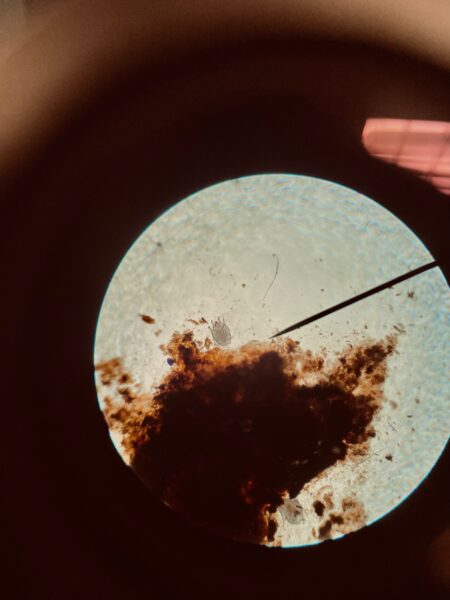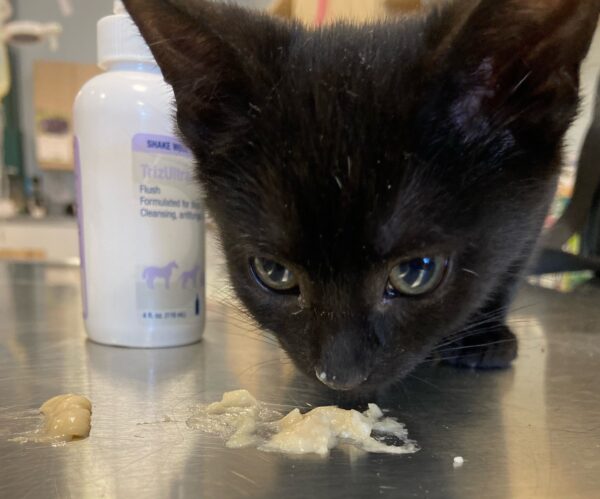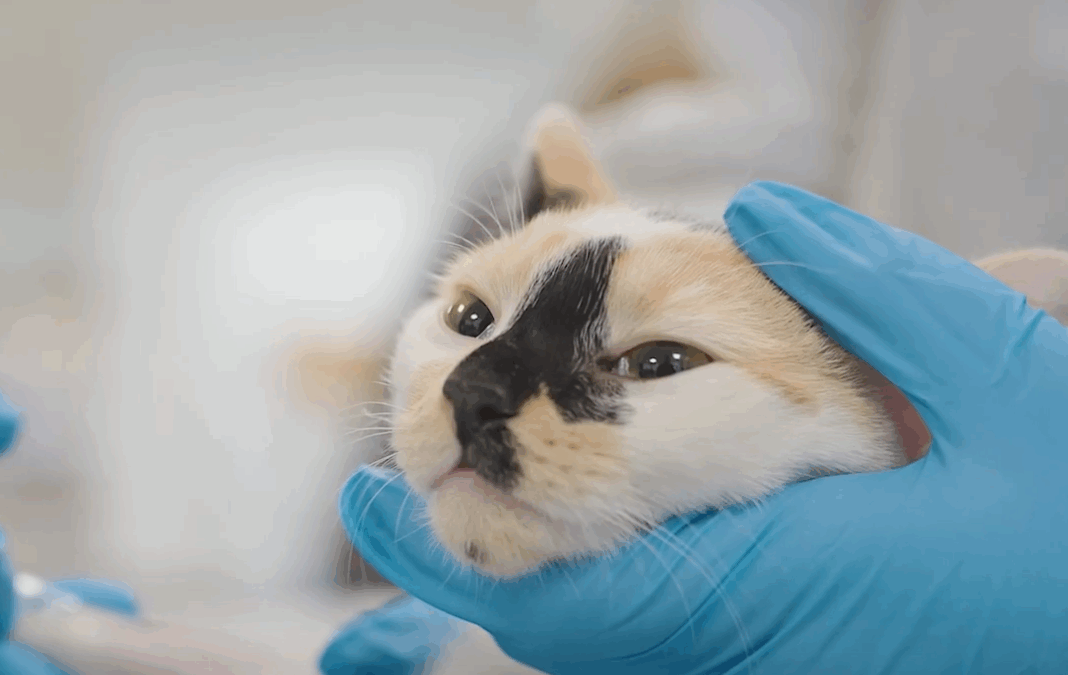
Unfortunately, mites are common and cause itchiness and sometimes infections. So if you suspect your pet has mites, don’t go running and hiding! It’s important to move quickly to diagnose and begin treatment so the mites don’t reproduce and spread.
Simply put, mites are a nuisance that can be treated.
In a cat, the first signs you should look for are excessive head shaking and scratching at the ears, as ear mites are a very common cause of feline ear infections. Your pet may even develop some redness around the ears, and you may even notice a black debris coming from the ears that resemble coffee grounds. In a dog, extreme general itchiness and hair loss is usually noted (though there are other common causes of itchiness in a dog that are not due to mites).
You should seek immediate care if you notice any of these symptoms, as excessive scratching can lead to infection if left untreated.
First and foremost, you want to stop the spread immediately. A veterinarian would need to do a full exam and ear or skin cytology to identify the mites. Sometimes, but not always, mites are able to be seen wiggling under the lens of the microscope.
Mites can be prevented and treated through use of specific parasite prevention, which you can obtain from your veterinarian.
Mites generally are passed from animal to animal, so you shouldn’t be too concerned about your pet passing them to you or those in your household.
We know it sounds scary. But treatment will scare those mites away and get your pet back to their normal selves!
If you suspect your cat or dog or exotic animal has ear or skin mites, book an appointment by clicking here or walk-in to any of our locations in Quincy, Easton and Plymouth.




